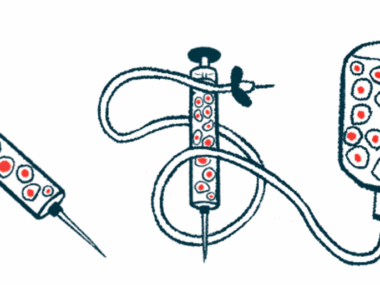Disease-modifying Parkinson’s therapy found safe in volunteers
Trial tested ENERGI-F705PD, which targets causes, not symptoms
Written by |

ENERGI-F705PD, a potential disease-modifying therapy for Parkinson’s disease, was found to be safe and well tolerated in a Phase 1 clinical trial involving healthy volunteers, according to developer Energenesis Biomedical.
Unlike currently available treatments, ENERGI-F705PD aims to address the causes of Parkinson’s and not just its symptoms. By combining different therapeutic strategies, ENERGI-F705PD is designed to target the mechanisms underlying the neurodegenerative condition, Energenesis said in a company press release.
As such, “the encouraging results from our Phase [1] trial bring us one step closer to delivering a meaningful treatment option for [Parkinson’s] patients worldwide,” said Han-Min Chen, PhD, CEO of Energenesis.
The Taiwan-based company said it is now planning for a Phase 2 trial in people with Parkinson’s.
Parkinson’s results from the gradual degeneration of nerve cells that make dopamine, a chemical messenger. Without enough dopamine, the brain’s signals get disrupted, causing a range of motor and nonmotor symptoms.
“Current treatments for Parkinson’s disease primarily target symptoms,” Chen said, as no currently approved therapies can slow, stop, or reverse disease progression.
“ENERGI-F705PD represents a novel therapeutic strategy with disease-modifying potential,” he added.
Developer now aiming to test disease-modifying therapy in patients
ENERGI-F705PD is an oral medication that can enter the brain and is designed to help nerve cells produce more energy and protect themselves from damage.
It works in several ways to tackle key problems underlying Parkinson’s disease. By increasing ATP — the energy molecule cells rely on — ENERGI-F705PD may help stop harmful clumps of alpha-synuclein, a key feature of Parkinson’s, from forming inside nerve cells and causing damage.
The treatment also boosts nerve cells’ natural antioxidants to fight damage, and supports the production of dopamine by increasing the activity of tyrosine hydroxylase, an enzyme that is important in dopamine production.
[The] multi-pronged approach [used in ENERGI-F705PD] may significantly slow disease progression.
Together, these mechanisms target molecular processes related to Parkinson’s brain abnormalities and neurodegeneration.
“This multi-pronged approach may significantly slow disease progression,” Chen said.
The Phase 1 trial enrolled 24 healthy volunteers who received either ENERGI-F705PD or a placebo. Researchers evaluated the safety and tolerability of the medication. They also measured pharmacokinetics, or how the medication moves through the body.
The results validated the treatment’s sustained-release formulation, finding a slow, continuous drug delivery, and showed a positive safety profile.
Based on these results, Energenesis is planning a Phase 2 trial in people with Parkinson’s. The company intends to submit an application for this study to regulators later this year.



